London Journal, Part III
On our cousins, in their capital
N.B. For Parts I and II of this journal—which began on Monday—go here and here. The journal concludes today.
In many, many visits to London, I have always been unclear about one thing: Which side of the sidewalk are you supposed to walk on? At home, we walk on the right, usually, and pass on the left. Because that’s the way we would do it, in cars, on the road. By the same logic, shouldn’t Brits walk on the left and pass on the right, as they do on the road?
Yet this is not so—at least clearly so. I have asked some locals about this. They seem a little confused by the question.
***
On the subject of streets—isn’t this a fetching one, one that says, “England”? (It’s in Earl’s Court, for those who wish to know the specific locale.)
***
On the streets—all over town—I hear lots and lots of French. And lots and lots of Italian. Far more of either language than I hear at home, in New York. Far more. At home, I tend to hear Spanish and Russian.
Is it too difficult, I wonder, for Frenchmen and Italians to get into the U.S.? Too much of a hassle?
***
Stick with languages—Romance languages: This is an intolerable mish-mash! Pick a lane!
***
A difference between London and New York—another one: Far fewer people here than at home. Far fewer. Everything is quieter. In some neighborhoods, I have the sensation of being in a suburb. A leafy suburb.
***
A garden in Hyde Park, for your viewing pleasure (and smelling pleasure, if you could):
***
At the edge of the park’s lake—I believe they call it “the Serpentine”—I see a black swan. In my experience, “black swan” has mostly been a metaphor, not a zoological reality.
***
If you’re going to be named “Hoare,” you might as well be part of a successful banking family, to ease the stigma—don’t you agree? These Hoares are an old, old banking family (dating from 1672):
***
Here is St Columba’s Church, in Knightsbridge—Presbyterian (part of the Church of Scotland). Do you know what I find appealing about it? Its plainness. An attractive plainness.
***
If the streets of London are any indication, the Brits are a dog-loving people—another thing in their favor. (In the Brits’ favor, I mean, although possibly in the dogs’, too.)
***
When I walk through Belgravia, I think of one of my favorite stories—a story recounted to me by David Pryce-Jones, the source of many, many of my favorite stories. (I should pay him royalties.)
This story concerns Oliver Lyttelton. He was a viscount, a businessman, a minister in Churchill’s cabinet, etc. Before all that, he was a hero in World War I—fantastically brave.
He lived in Belgravia, a markedly affluent district. The Lytteltons had a lefty son who, one night, had some friends over to dinner. Comrades.
After dinner, the viscount served them Champagne. He stood on the front steps of his house, thrust his glass into the air, and said, “To the People’s Republic of Belgravia!”
(The Pryce-Joneses and I habitually refer to the neighborhood as “the People’s Republic of Belgravia.”)
***
Can I tell you something, maybe a little low-class? People here—on their signs and in their conversation—refer to “toilets.” Not “restrooms” or other euphemisms. “Toilets.”
I kind of like the bluntness of that.
***
In recent months, I have been to three European capitals—if we count London as European. The other two are Scandinavian: Copenhagen and Oslo. In all three, I have noticed that there are more Burger Kings—a lot more—than there are at home.
I suppose I could look up some stats, to verify ...
***
The voice on the subway trains is really classy. I mean, the voice of the recorded announcements. It is a female voice. Posh, crisp. The final stop on one of the lines is Cockfosters, an area of North London. The way this lady says “Cockfosters,” over and over, is—well, a delight to hear.
***
In Kensington, I am walking in one direction, and three schoolboys, in their uniforms, are walking in the other. I think they’re about twelve. They accost me with a question. I don’t get it at first. I ask the one kid—kind of the leader of the trio—to repeat it. He says, “Messi or Ronaldo?”
Ah. Let me translate: Who is the better soccer player, Lionel Messi or Cristiano Ronaldo?
I give them more than they have bargained for ...
I subject them to a little speech about ranking. (Interestingly, I have just written about this topic, for the Washington Free Beacon, here.) They listen kind of wide-eyed—and not disrespectfully.
I then tell them that I once met Pelé. (This was at Davos.) I thought they may not know who that long-ago player was. But, oh, they know. And I am treated to mouth-agape appreciation.
What a pleasant encounter. (And I know approximately jack about soccer. I gave them what I could.)
***
Very moving, near Wellington Arch, is the Royal Air Force Bomber Command Memorial. Note the slogan of the command: “Strike hard, strike sure.”
***
It is opening night of the Proms in Royal Albert Hall. The Proms is a summer concert series that has gone on since 1895. (I will review the concert in question in the next issue of The New Criterion.) Would you like to see a shot of the exterior? The exterior of Royal Albert Hall, that is?
And here is a shot within:
***
In the airports I’m familiar with—the ones in New York—you have to mortgage your house to buy, say, a Coke and a cookie. If you want a sandwich: mortgage two houses.
Here in Heathrow Airport, the prices are reasonable, it seems to me. Normal. The kind of prices you would encounter in town.
You know what the cashiers ask, perpetually, when selling food? “Any allergies?” I don’t believe I have ever heard that at home.
***
In this journal, I have noted a few cultural differences. At home, going through airport screening, we hold our hands in the air. Here, at Heathrow, you are instructed to put your hands down (holding them slightly out from your sides).
Can I end on something mundane? Airport postures, for heaven’s sake? Shouldn’t I end a three-part London journal with a quotation from Keats or something? No, I think I’ll simply end.
While thanking you so much for joining me. Some of my readers have been joining me on these trips for 20-plus years. I appreciate them so. And new readers too.
All the best. Later on.



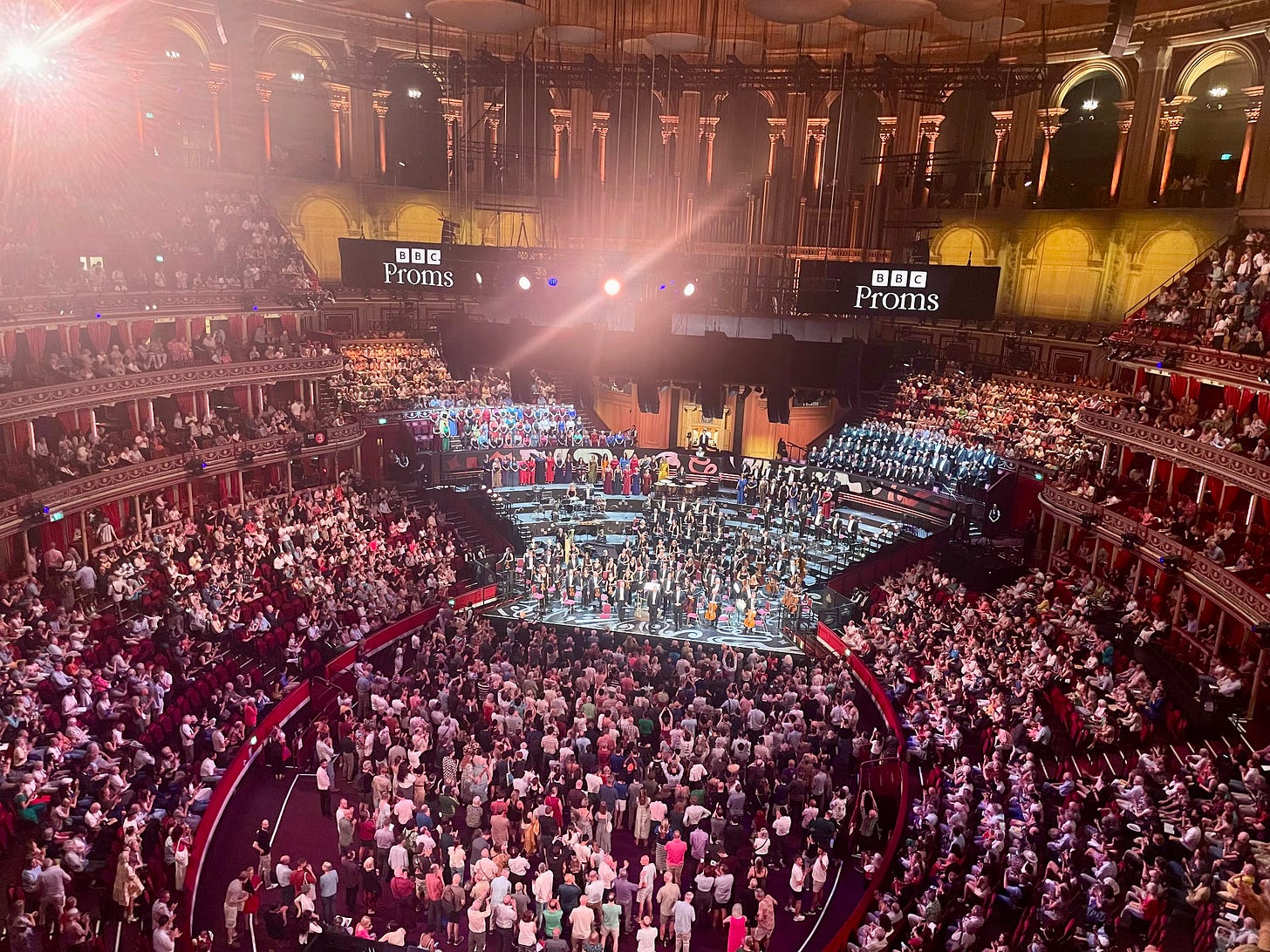

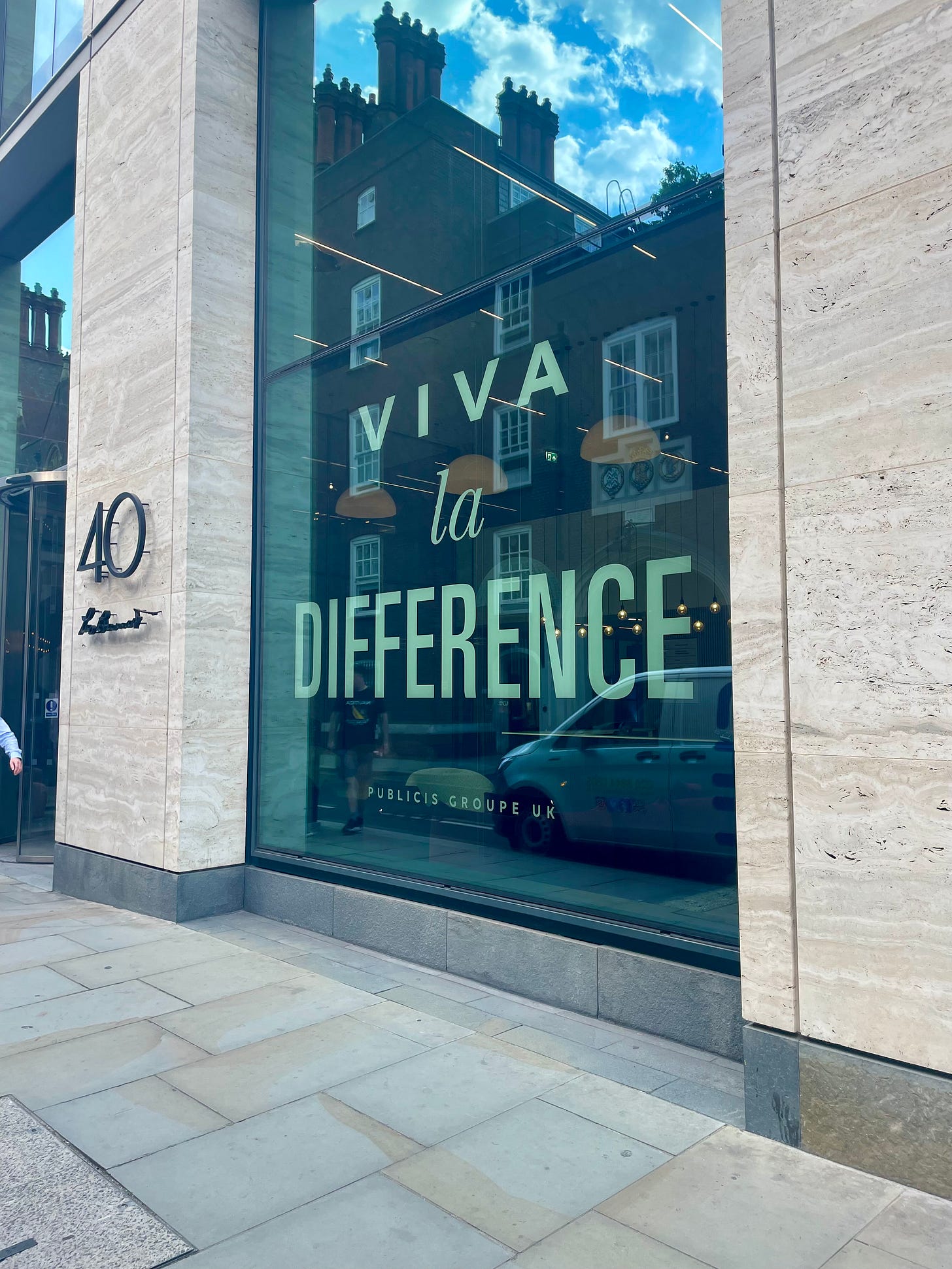

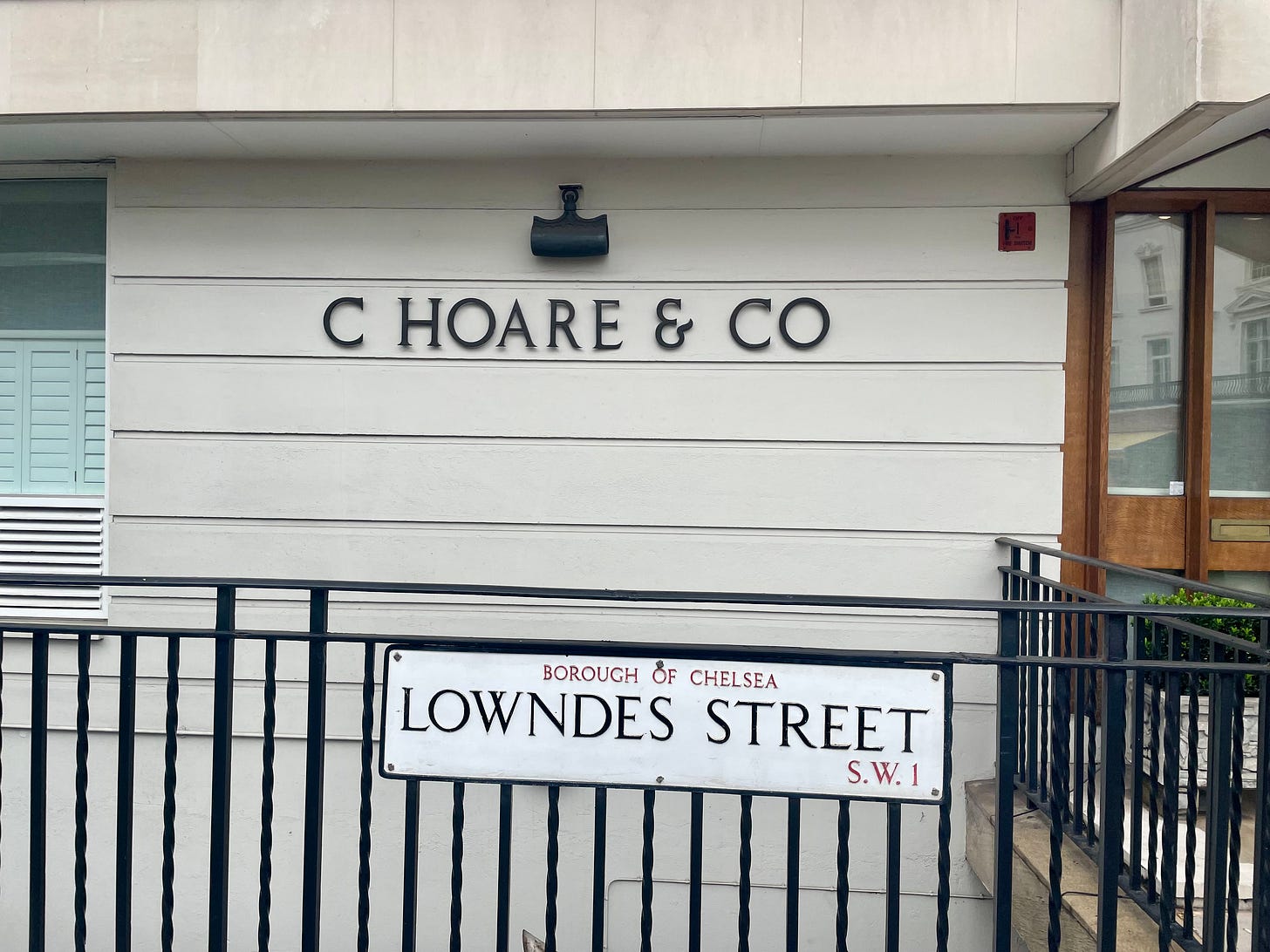

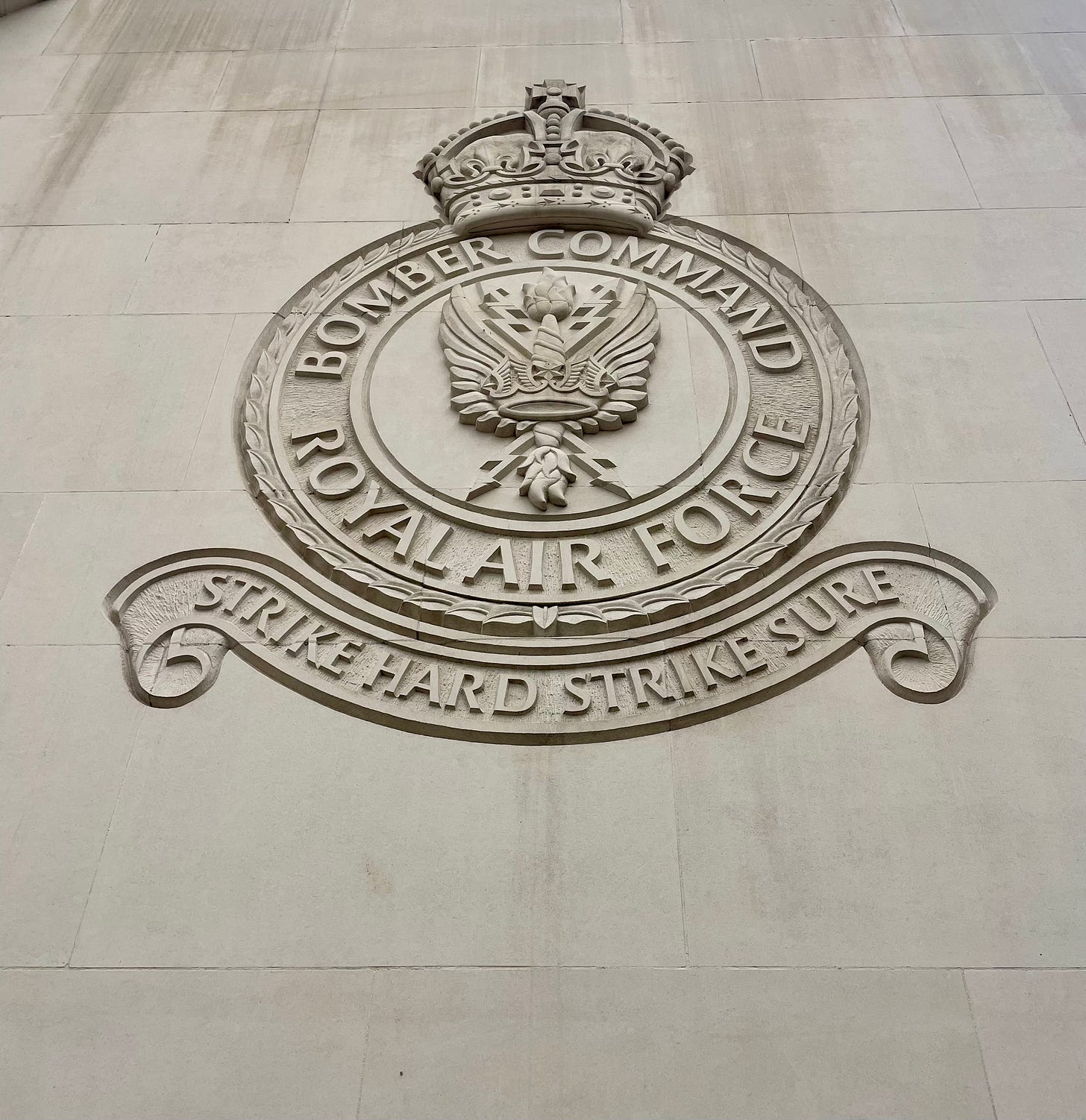
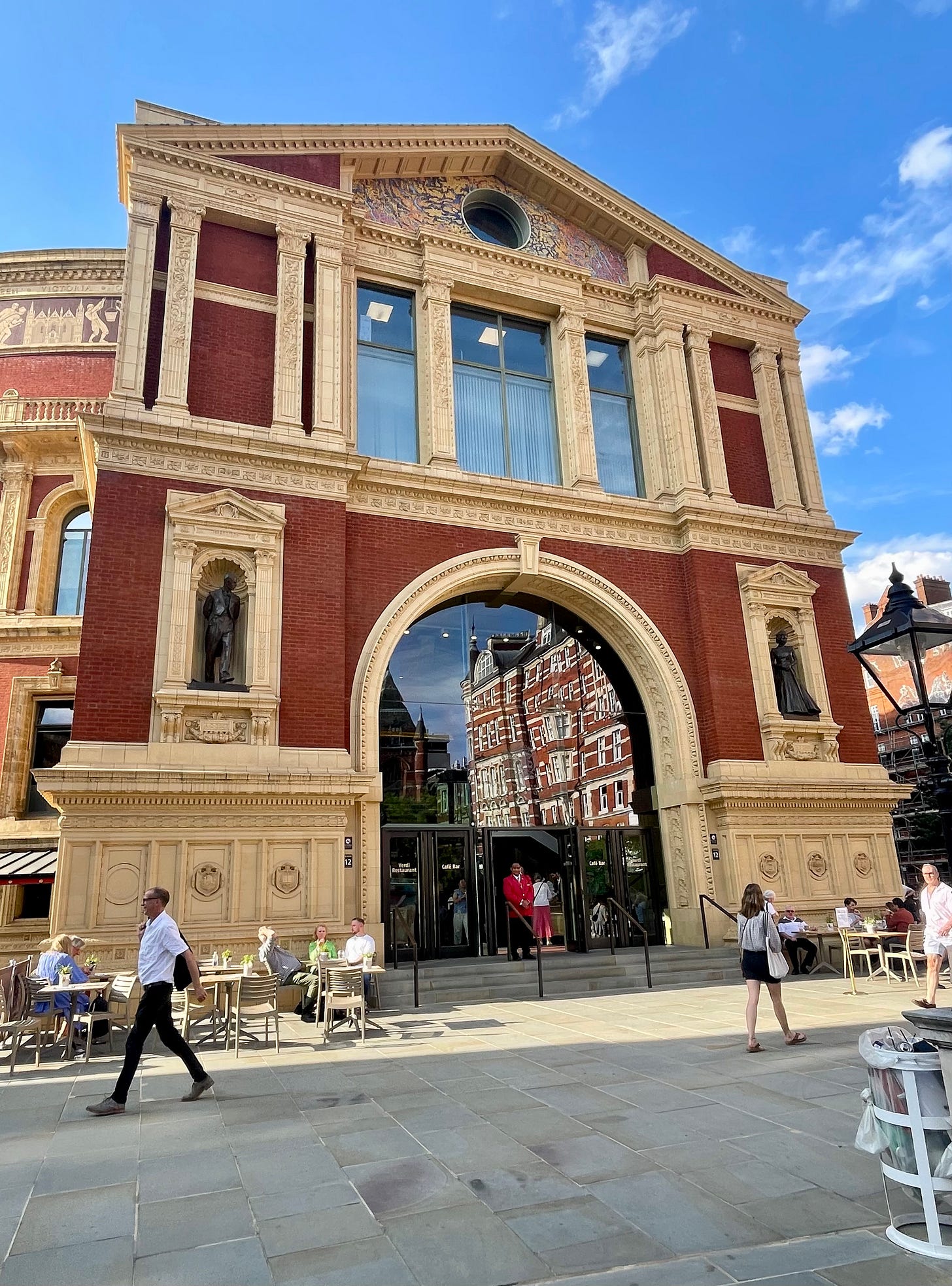
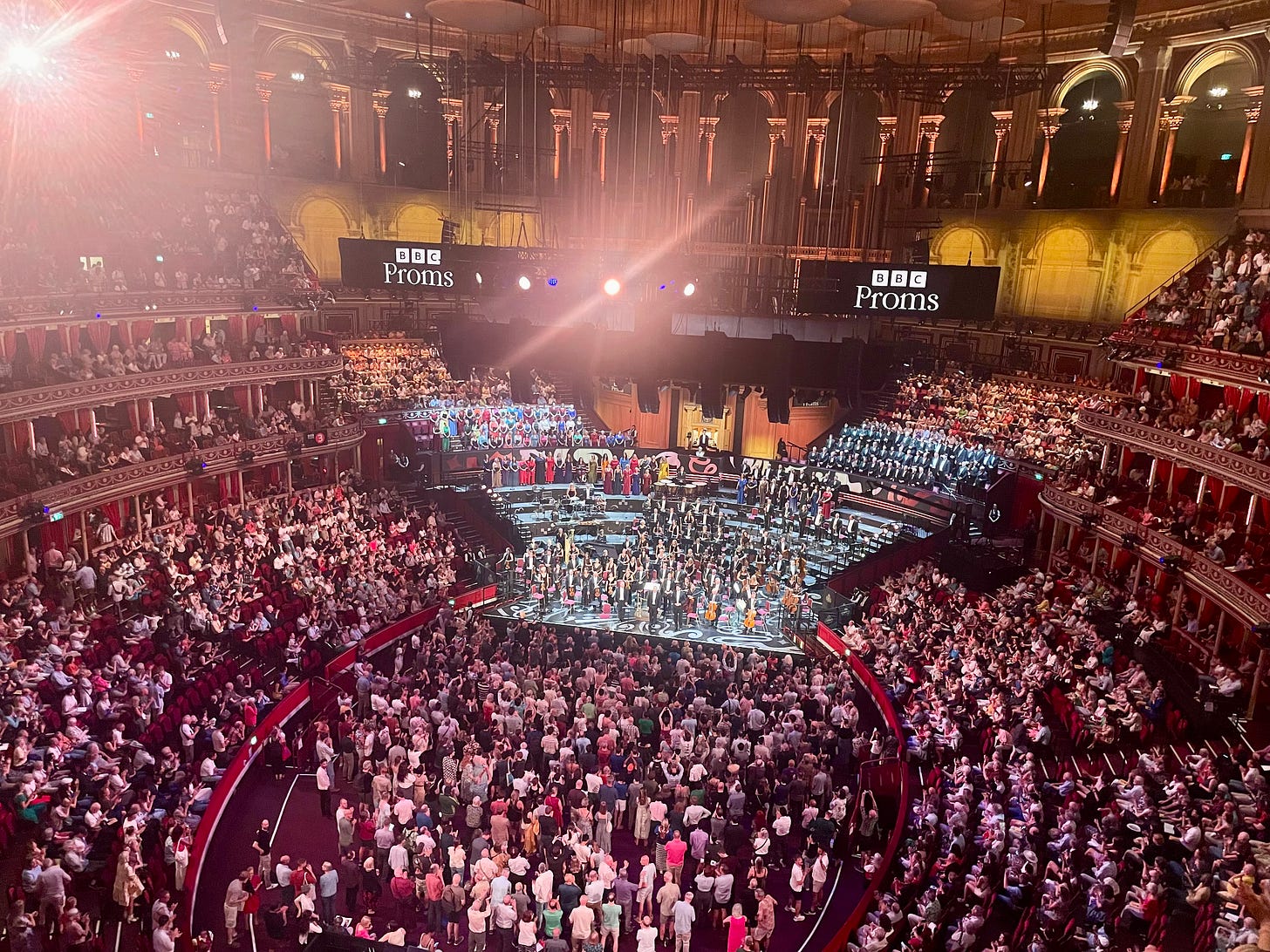
"At home, I tend to hear Spanish and Russian."
Same, although I can't tell Russian from Ukrainian, so it could be either one.
Thanks Jay – I’m enjoying your observations of my adopted hometown. You’re reminding me of when I moved here 14 years ago. (I’m a west coast American now living in the Borough of Richmond.)
A few thoughts:
- If you’re hearing lots of French voices, chances you’re in a neighbourhood that has a French school. When they put a Lycee Francais ecole primaire in my former neighborhood near Northcote Road in Battersea, the French spoken there went up exponentially. If you see a Aux Merveilleux de Fred, you can bet you’re close to a French school. (By the way, the pastries are amazing.)
- One of the reasons there are fewer people in the neighborhoods might be because school’s out and everyone is on holiday. Compound that with the fact you’re in upmarket neighborhoods. Everyone is out of Dodge right now. (My high street is super-quiet right now.) Come September and the hustle and bustle will be back.
- If you’re in Belgravia, I would recommend The Grenadier or The Thomas Cubitt.
- Toilets? Yes, they’re called that but well-mannered people will call them ‘The Gents/Ladies’ or the ‘Lavatory’.
- Re: recorded announcement at tube stations. Go to Embankment station. Listen to the voice that says “Mind the Gap”. It’s distinctly different and a very heartwarming story behind that.